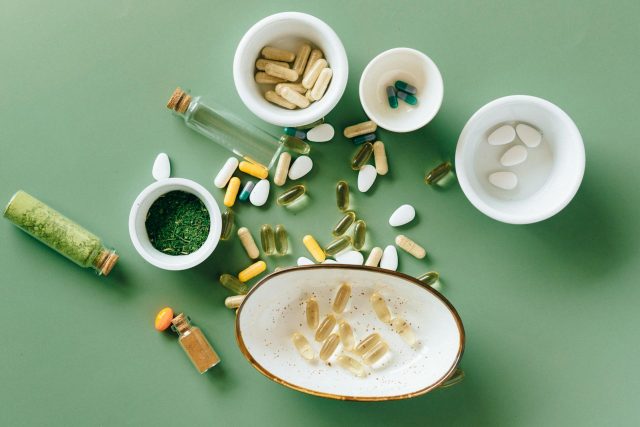Are natural remedies really safer or more effective than synthetic medicines? Discover the truth behind this common belief in our expert guide.
Introduction
There’s this idea. A belief. That what comes from the earth is better than what’s made in labs. Sounds good, right? But is it always true?
Natural vs synthetic medicines. It’s a debate older than your grandma’s herbal tea recipe. You see it everywhere. Social media, your local wellness shop, even whispered in hospital hallways. “Go natural—it’s safer.” But is that always the case?
This article’s for the curious ones. The cautious ones. And the ones caught in between. We’ll talk about what these terms even mean. Where they come from. Why they matter. And when they can help—or hurt.
Let’s dive in.
What Are Natural and Synthetic Medicines?
Natural Medicines
Plants. Roots. Oils. Things you can touch and smell. That’s what people think of when they hear “natural medicine.”
Grandma’s ginger tea for a cold. Turmeric milk for sore joints. Stuff passed down like stories.
Natural remedies come from—well, nature. Plants, minerals, even animals. Used for centuries. Some work. Others, not so much. Here’s what they include:
- Herbal teas and plant extracts
- Essential oils like lavender
- Ayurveda and Chinese herbs
- Supplements—think turmeric, fish oil
They feel safe. But feelings and facts aren’t always best friends.
Synthetic Medicines
Now, onto the lab stuff. The ones with long names and labels.
Synthetic drugs are man-made. Cooked up in labs by scientists. Some are inspired by plants. Others are totally original. Like a remix of nature. But better controlled.
Examples?
- Painkillers like ibuprofen
- Antibiotics—ever had amoxicillin?
- Heart meds like atenolol
They go through a lot of tests. A lot. Not always perfect. But predictable.
Effectiveness: Which Works Better?
Natural Medicines
Some work. Especially for mild stuff—like nausea, stress, colds. But that’s not the whole story.
Pros:
- Feel safer
- Easy to get
- Cultural familiarity
Cons:
- Weak evidence in many cases
- Doses? All over the place
- Some can be dangerous, believe it or not
Turmeric’s nice. But it won’t cure cancer.
Synthetic Medicines
These are the big guns. Backed by studies. Precise.
Pros:
- Standardized doses
- Strong clinical backing
- Supervised production
Cons:
- Side effects are real
- Not everyone trusts them
- Overuse happens—too often
Still, when you’ve got a serious condition? You’ll want what works.
Safety: A Closer Look
People say, “It’s natural, so it must be safe.” Eh. Not always.
Natural Remedies
Yep. They can go wrong. Fast.
- Echinacea? May cause allergies.
- Kava? Toxic to your liver.
- St. John’s Wort? Messes with antidepressants.
They aren’t harmless just because they’re green and pretty.
Pharmaceutical Drugs
More controlled. But not risk-free.
- Ibuprofen? Messes with your stomach.
- Opioids? Addictive.
- Antibiotics? Overuse = resistance.
Side effects happen. The difference? We usually know about them.
Who’s Keeping an Eye?
Natural Products
Surprise: Many herbal remedies skip strict testing. They’re sold as “supplements.” Not “medicine.”
So?
- No dose standard
- Mislabeling happens
- Weak oversight
In the U.S.? FDA doesn’t approve them before hitting shelves.
Synthetic Drugs
Tough love here.
- Lab trials
- Human studies
- Post-market checks
Not perfect. But a lot safer in terms of consistency.
What About Cost?
Natural stuff? Cheap—if it’s local. But fancy branded turmeric capsules? Not so much.
Synthetic meds? Insurance might cover them. Might not. Without coverage, they sting.
It’s not just about money. It’s about value. And risk.
Let’s Bust Some Myths
“Natural means safe.”
Nope. Not always. Some herbs kill. Literally.
“Synthetic drugs are all chemicals.”
So is water. The word “chemical” isn’t the villain here.
“Herbs cure the root cause.”
Do they? Rarely. Most just ease symptoms. Not eliminate the disease.
We’ve gotta stop oversimplifying.
Working Together: Best of Both
Why not both?
Modern medicine does this. A lot.
Artemisinin—a malaria drug from a plant. Modified in labs. Saves lives.
Cancer patients—take chemo and turmeric supplements. For side effects.
It’s called integrative medicine. It’s a real thing. Best of both worlds.
Storytime: Arthritis and Turmeric
Meet Sarah. 52. Has arthritis. Swears by turmeric tea. Says it “takes the edge off.”
Her doctor nods. But still prescribes ibuprofen for flare-ups. Because that’s what actually works.
Moral? Use both. Smartly.
How to Choose
Ask yourself:
- Is it serious?
- Is there good evidence?
- Any interactions?
- Am I guessing—or informed?
Talk to someone qualified. Your cousin on Facebook doesn’t count.
New Stuff Happening
Science keeps moving. Fast.
- Synthetic biology: Making natural meds in labs
- AI drug design: Predicting better treatments
- Nano-medicine: Targeted delivery, fewer side effects
Nature and tech—becoming best friends.
FAQ: Quick Answers
- Are herbs safer? Not always. Many can be harmful.
- Can I mix both types? Yes, but with a doctor’s okay.
- Do herbs work? Some. But not for everything.
- Are drugs better? They’re more tested. Often stronger.
- Fewer side effects with herbs? Sometimes. But often, we just don’t know.
- Can I self-medicate with herbs? Risky. Don’t.
- How are synthetic meds tested? Lab. Animals. People. A long road.
- Are supplements medicines? Sort of. Use wisely.
- Can I stop my meds for herbs? Only if your doctor says so.
- What’s best for chronic illness? Usually a combo—drugs and smart habits.
Final Thoughts
Here’s the thing.
Natural sounds better. Feels safer. But when health is on the line? You want what works.
Sometimes that’s a pill. Sometimes a plant. Sometimes both.
Don’t fall for trends. Or fear. Or fancy labels. Ask questions. Learn. Trust real science—and your body.
Because the goal isn’t “natural.” The goal is better health.










